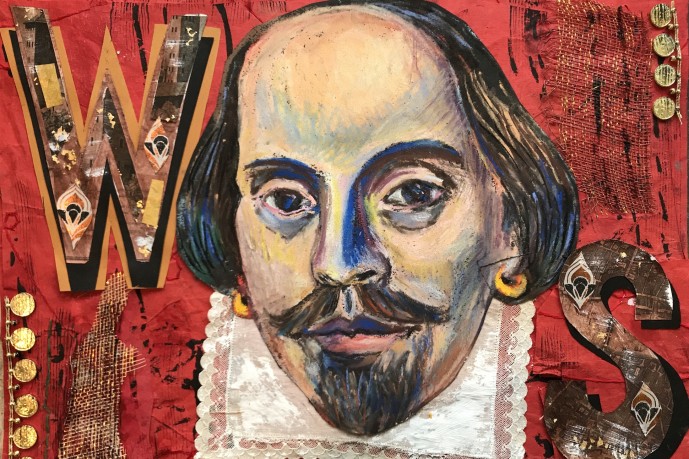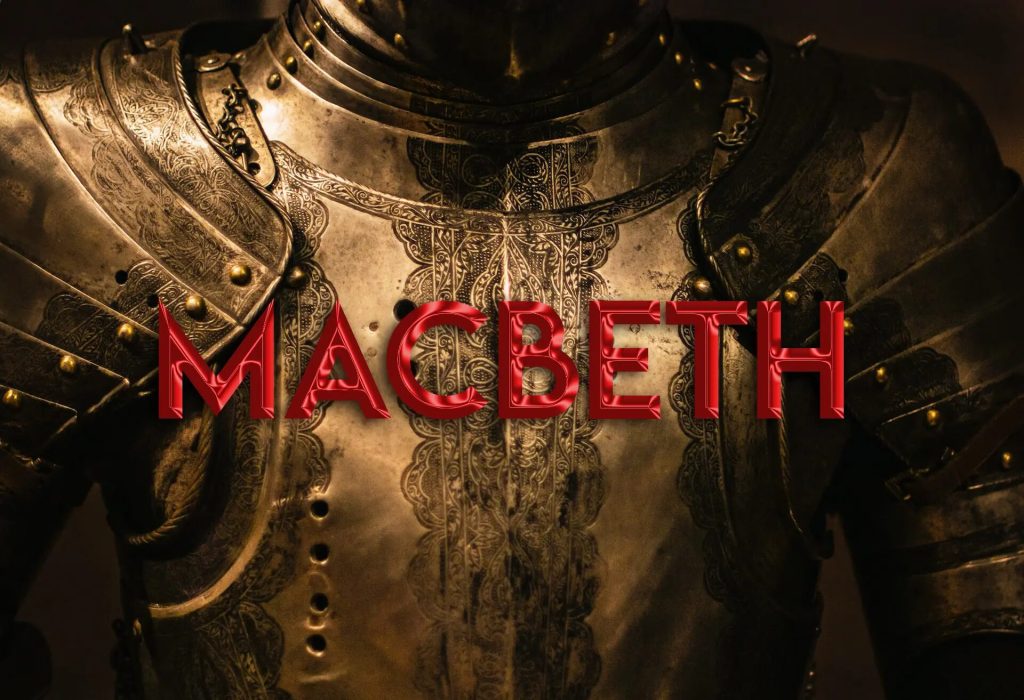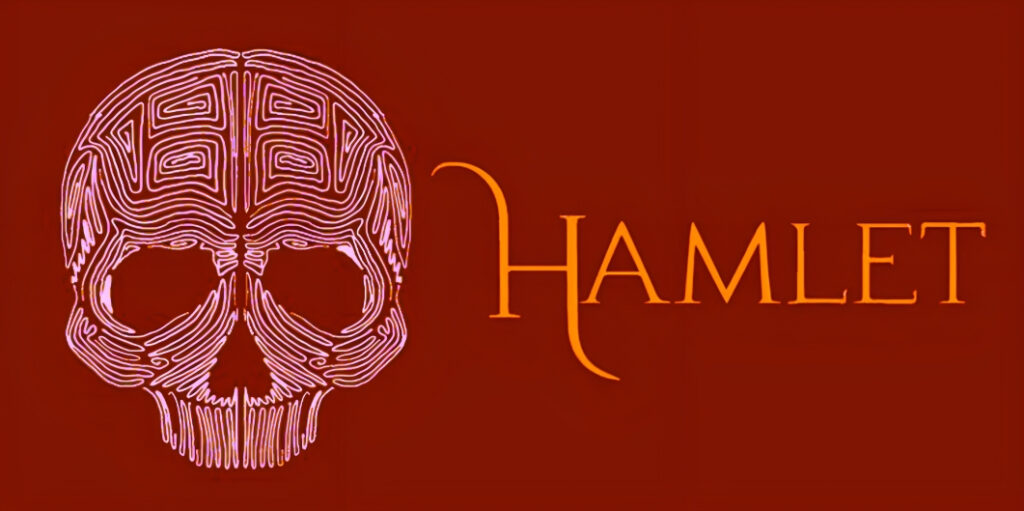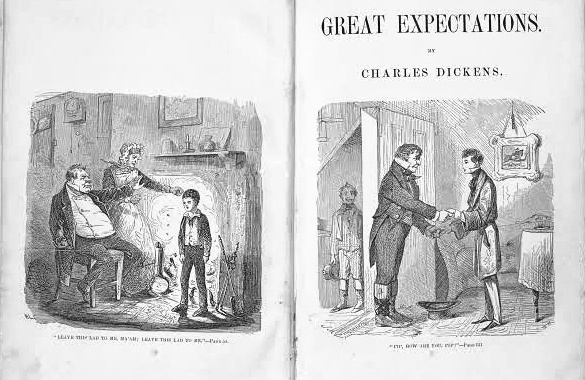
The Role of the Witches in Macbeth by William Shakespeare

Role of the Witches in Macbeth
The witches in William Shakespeare’s play, Macbeth, have a significant role in the development of the plot and the characters. They appear throughout the play, and their prophetic visions play a pivotal role in driving the narrative forward. In this essay, we will examine the role of the witches in Macbeth, analyzing their symbolism, their effect on the characters, and their relationship to the themes of the play.
The three witches first appear in Act I, Scene I, where they set the tone for the play with their dark and ominous language. They speak in rhyme, using repetition and alliteration to create a sense of foreboding. The opening line, “When shall we three meet again?” immediately suggests that these witches are not ordinary women but rather supernatural beings who exist outside of time and space (Act I, Scene I, Line 1). The fact that they are meeting on a “blasted heath” also suggests a place of desolation and despair (Act I, Scene I, Line 2). This opening scene establishes the witches as powerful and otherworldly figures, setting the stage for their role in the play.
The witches’ prophecies are the driving force behind the play’s action. In Act I, Scene III, they tell Macbeth that he will become Thane of Cawdor and eventually king, and they tell Banquo that he will father a line of kings. These prophecies plant the seeds of ambition in Macbeth’s mind, and he begins to contemplate the possibility of taking the crown for himself. However, the witches’ prophecies are ambiguous, and they leave open the possibility that their predictions could be interpreted in different ways. This ambiguity allows for Macbeth to misinterpret the prophecies and leads to his downfall. As Macbeth ponders the witches’ predictions, he says, “This supernatural soliciting cannot be ill, cannot be good: if ill, why hath it given me earnest of success, commencing in a truth? I am Thane of Cawdor: if good, why do I yield to that suggestion whose horrid image doth unfix my hair and make my seated heart knock at my ribs, against the use of nature?” (Act I, Scene III, Lines 130-136). Macbeth’s uncertainty about the witches’ prophecies shows how the witches have unsettled him and introduced the idea of regicide into his mind.
The witches’ role in Macbeth is not limited to their prophetic visions. They also function as a symbol of the supernatural and the unknown. In Shakespeare’s time, witchcraft was a very real and terrifying phenomenon, and people believed that witches had the power to cast spells, make potions, and even fly through the air. The witches in Macbeth embody these beliefs and serve as a representation of the supernatural and the unexplainable. They are both alluring and frightening, and their presence on the stage creates a sense of unease and disorientation. When Banquo sees the witches, he remarks, “What are these, so withered and so wild in their attire, that look not like th’ inhabitants o’ th’ earth, and yet are on ‘t?” (Act I, Scene III, Lines 38-41). Banquo’s description of the witches shows how they are perceived as otherworldly beings who do not belong in the natural world.
The witches also play a significant role in the development of Macbeth’s character. Prior to encountering the witches, Macbeth is a loyal and honorable soldier, but he is also ambitious and eager for power. The witches’ prophecies tap into this ambition and create a desire for greatness that ultimately leads to his downfall. Macbeth becomes increasingly paranoid and ruthless in his pursuit of power, leading to his moral and physical deterioration. The witches’ influence on Macbeth is evident in his soliloquy in Act I, Scene VII, where he struggles with the idea of murdering Duncan, saying, “If it were done when ’tis done, then ’twere well / It were done quickly” (Act I, Scene VII, Lines 1-2). This internal conflict shows how the witches’ prophecies have affected Macbeth’s thoughts and actions, and how they have led him down a path of destruction.
The witches also play a role in the development of Lady Macbeth’s character. When she learns of the witches’ prophesies, she sees them as a means to an end and encourages Macbeth to take action to secure his place as king. Lady Macbeth is driven by ambition and a desire for power, and the witches’ prophesies provide her with a justification for her actions. However, like Macbeth, Lady Macbeth’s ambition leads to her downfall, and she ultimately descends into madness and despair.
In conclusion, the witches in Macbeth play a significant role in the development of the play’s plot, characters, symbolism, and themes. Their prophetic visions drive the action of the play, and their ambiguous language creates a sense of foreboding and uncertainty. They represent the supernatural and the unknown, and their presence on the stage creates a sense of unease and disorientation. Ultimately, the witches serve as a warning against the corrupting nature of unchecked ambition and the consequences of our actions.
*****
Read More: Macbeth by William Shakespeare
Written by Koushik Kumar Kundu
Koushik Kumar Kundu was among the toppers when he completed his Masters from Vidyasagar University after completing his Bachelors degree with Honours in English Literature from The University of Burdwan. He also completed B.Ed from the University of Burdwan.
Comments
1 comment






You need to be a part of a contest for one of the greatest websites on the internet. Im going to recommend this site!